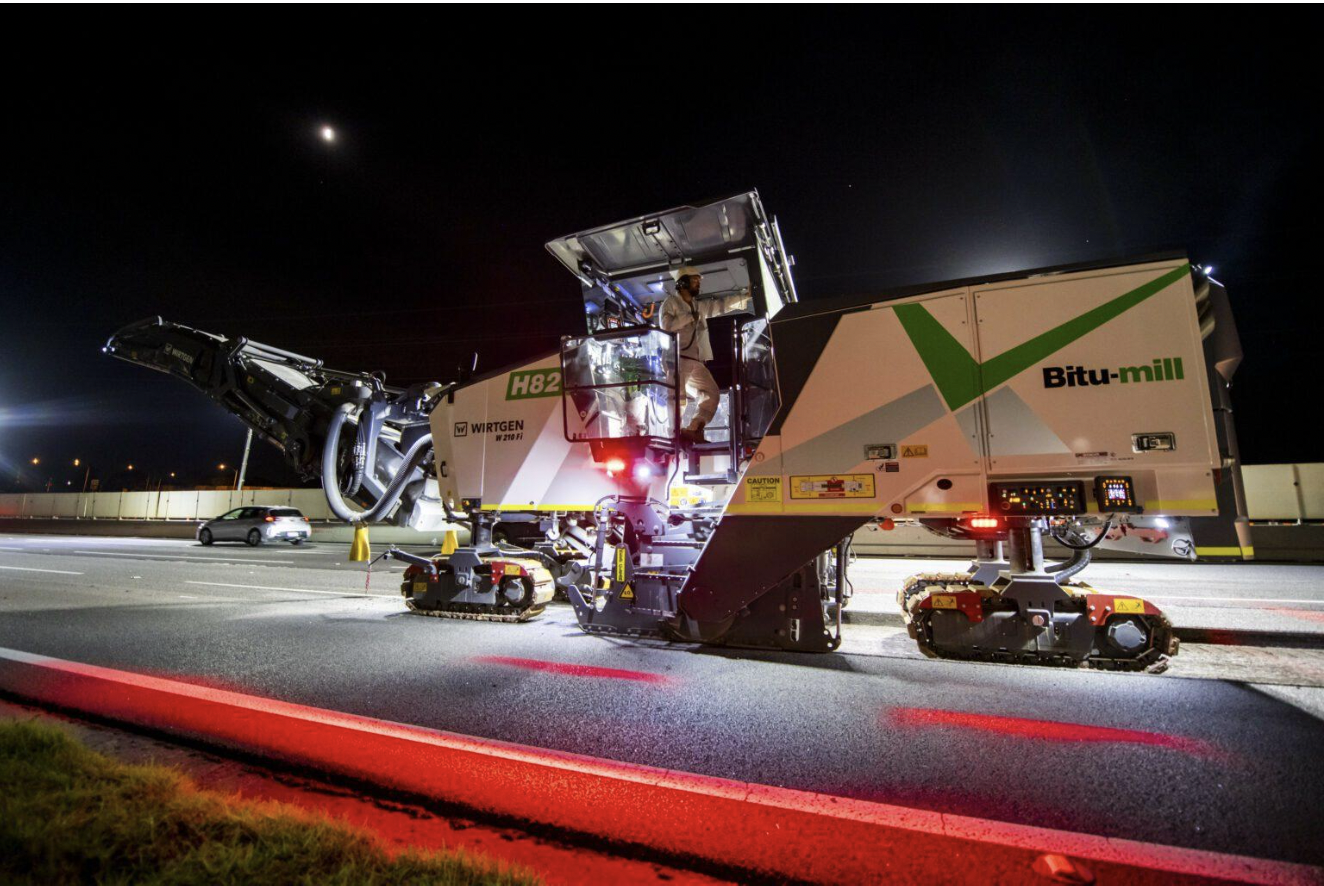
Asphalt paving is a critical component of modern infrastructure, providing durable and smooth surfaces for roads, parking lots, and other paved areas. However, to achieve high-quality results and long-lasting surfaces, proper groundwork is essential. One of the most crucial preparatory steps in asphalt paving services is profiling. When executed correctly, profiling enhances pavement durability, reduces material waste, and significantly cuts down long-term maintenance costs.
In this blog, we’ll explore why profiling is a vital step in cost-effective asphalt paving services and how it contributes to sustainable, high-quality infrastructure projects.
Profiling, also known as pavement milling or cold planing, is the process of removing a layer of an existing road surface before new asphalt is applied. This process is performed using specialized machinery equipped with rotating cutting drums that grind and remove old pavement to create a level and stable foundation.
There are several types of profiling techniques used in asphalt paving services:
● Full-depth milling – Removes the entire asphalt surface, down to the base layer, to allow for complete reconstruction.
● Partial-depth milling – Removes only the damaged or uneven upper layers of pavement while keeping the base intact.
● Fine profiling – A precise technique that smooths minor surface irregularities for a seamless finish.
By selecting the appropriate profiling technique, asphalt contractors can ensure that the paving process is optimized for both cost efficiency and long-term performance.
One of the most significant advantages of profiling is its ability to minimize material waste. By selectively removing only the deteriorated layers of pavement, contractors can retain the stable foundation beneath, reducing the need for excess asphalt materials.
Additionally, the removed asphalt can often be recycled and reused in the new pavement mix, lowering material costs and promoting sustainability. Asphalt recycling, known as reclaimed asphalt pavement (RAP), helps in reducing reliance on new raw materials, making the entire paving process more eco-friendly and cost-effective.
Profiling ensures that the new asphalt adheres properly to the underlying structure. A smooth, uniform base prevents common pavement failures such as:
● Cracking and potholes – Uneven surfaces can lead to weak spots, causing premature deterioration.
● Water damage – Poorly profiled surfaces may allow water infiltration, leading to base erosion and costly repairs.
● Uneven wear – A well-profiled surface distributes traffic loads more evenly, extending the lifespan of the pavement.
By eliminating irregularities and improving compaction, profiling maximizes the durability of asphalt paving projects, reducing long-term repair costs.
Without proper profiling, asphalt paving services often require excessive amounts of new material to compensate for uneven surfaces. This leads to higher project costs and extended timelines. By using precise profiling techniques, contractors can:
● Achieve a level surface with less asphalt material required.
● Reduce labor and machinery costs by streamlining the paving process.
● Minimize the need for frequent repairs and resurfacing, leading to long-term savings.
For commercial and municipal projects working within tight budgets, profiling provides an efficient and cost-saving solution for road rehabilitation and new pavement installations.
Uneven and deteriorated pavement can lead to unsafe driving conditions, increasing risks of accidents. Profiling plays a crucial role in improving the safety and ride quality of roads by:
● Eliminating bumps, dips, and rutting, which can cause vehicle instability.
● Ensuring proper water drainage to prevent hydroplaning hazards.
● Providing a smooth and level surface for improved traction and reduced tire wear.
Better road conditions contribute to lower maintenance costs for both municipalities and private property owners, as well as reducing liabilities related to road safety issues.
Sustainability is becoming increasingly important in the construction industry. Asphalt paving services that incorporate profiling techniques are more environmentally responsible due to:
● Lower carbon footprint – Reduced material waste and recycling of asphalt contribute to lower emissions.
● Less disruption to traffic – Efficient profiling minimizes construction time and road closures, reducing fuel consumption for detoured traffic.
● Minimized environmental impact – By optimizing material use, profiling reduces quarrying and extraction of new asphalt components, preserving natural resources.
Asphalt contractors who prioritize profiling can align their services with green building initiatives while keeping costs manageable for clients.
Advancements in technology have significantly improved the accuracy and efficiency of profiling in asphalt paving services. Some of the latest innovations include:
● Laser-guided profiling machines – These machines provide precision cutting, ensuring an even surface for new asphalt layers.
● GPS-enabled milling equipment – Allows for real-time adjustments and optimal surface leveling.
● Automated profiling systems – Improve efficiency by reducing manual errors and increasing productivity on-site.
By leveraging these technologies, asphalt contractors can enhance project accuracy, reduce waste, and deliver cost-effective paving solutions to clients.
For any successful asphalt paving project, profiling is a non-negotiable step. It ensures a stable foundation, optimizes material use, improves road longevity, and enhances safety—while also providing significant cost savings.
Property developers, municipalities, and business owners looking to invest in high-quality asphalt paving services should prioritize contractors who incorporate profiling in their processes. By doing so, they can ensure a durable, cost-efficient, and environmentally responsible pavement solution that stands the test of time.
With ongoing advancements in profiling technology and asphalt paving techniques, the industry continues to evolve toward more efficient and sustainable practices. Investing in proper profiling today means fewer repairs and a more reliable infrastructure for the future.